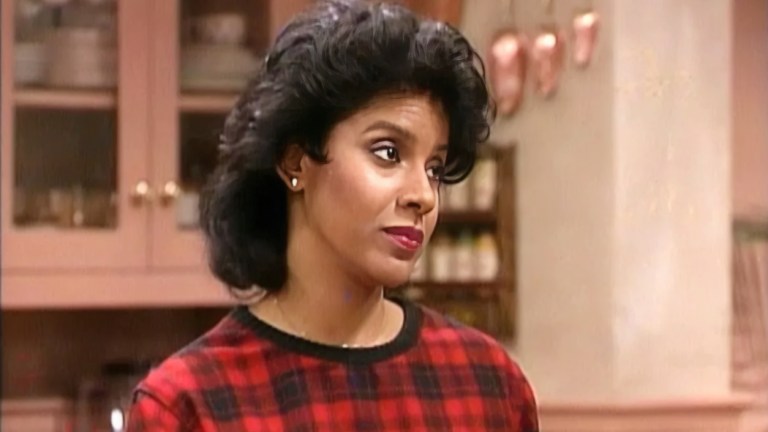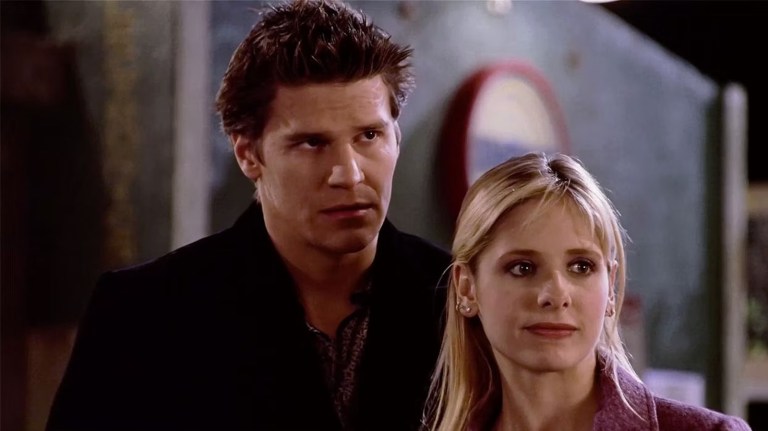
5 Things We Need To Stop Expecting Significant Others To “Just Get”
Despite our desperate attempts to recreate the things we see in Hollywood, we are never going to be in a successful relationship if we keep expecting our partners to just get everything that’s going on in our heads without us having to say it.
By ![]() Heidi Priebe
Heidi Priebe
We’ve all been brought up on “Dating Scripts:” That is, a set of absurd guidelines dictating how we ought to behave in a relationship. The scripts are battered, outdated and incomplete and yet we cling to them like lifelines because they advocate that someday our lives are going to blossom into a Nicholas Sparks novel if only we follow them religiously. There is no need for honest communication in a Nicholas Sparks novel. The hunky love interest can totally read your mind and he knows that ugh, it’s fine actually means “Please whisk me away to your lake house where we’ll make sweet love until you forget all about your stuffy finance who never kissed you in the rain quite the way that I, Ryan Gosling, did.”
Unfortunately (or very fortunately depending on how you look at it), life is not a Nicholas Sparks novel. It’s also not a rom-com, a TV drama or a porno. Despite our desperate attempts to recreate the things we see in Hollywood, we are never going to be in a successful relationship if we keep expecting our partners to just get everything that’s going on in our heads without us having to say it. If we want to make any real, off-screen relationship function, here are a few things we need to start clearing up ourselves.
1. Our definition of “Romance”
I know that talking about romance takes some of the fun out of it. It’s supposed to be spontaneous, unprecedented and from the heart, right? Right. Except the part we get stuck on is defining it.
Is an intimate dinner at home the epitome of romance or is a sharply-dressed night on the town more your speed? Do you want roses to commemorate your half-year anniversary or are you content to let that day pass you by? It’s better to talk about it once than face unprecedented disappointment each time an occasion slips away without the celebration you were hoping for. For some people, a quiet night at home is romantic. For others, it takes elaborate gestures and relentless reminders of love. Knowing how to give love the way someone wants to receive it is not a natural instinct. We have to actually communicate that.
2. The meaning behind our passive-aggressive comments.
Yes it is incredibly frustrating to be misunderstood by a partner to the point where reverse psychology seems like the only option. That’s how the language of passive aggressiveness was born. But the more we feed into it the more we aggravate both each other and ourselves.
I’ve conducted minimal research but I’d guess that about 5% of passive-aggressive comments are ignored because the receiver doesn’t understand that it’s fine actually means something else, and the remaining 95% of comments are ignored because ain’t nobody got time to deal with that melodrama. If something is not fine, the best and most straightforward response is “This is not fine, and here is what is wrong.” If you find you have to use that phrase way too often it may be your relationship — not your vocabulary — that needs some reworking.
3. Our sexual fantasies.
There is a problematic gap between the amount of porn we are exposed to growing up and the amount of sexual education we are exposed to. Porn has helped us assume that all sexual partners have the same fetishes as us and there is no need to ever chat about preferences, consent or expectations. This is untrue. It is also untrue that what’s good for the goose is always good for the gander (and vice versa).
Realistically, nobody knows how to get us off like ourselves. If we could only learn to ask things of each other, discuss our bodies comfortably and get it on like adults instead of teenage boys in porno films, we’d all be a little better off. Just because one party is satisfied does not mean the other one had an equally good time. Fake-orgasm scripts are not the ones that anyone wants to be reciting by default.
4. How we approach conflicts.
It’s a natural human inclination to want to help others with their problems. So when you come home after a long, stressful day and just want to vent, the best way to preface this is by saying “I just want to vent.” It’s simple and seemingly obvious, but it can clear up a lot of potential misunderstandings about where the conversation is going.
Beyond the focus of the everyday concerns, it’s important to let each other know how we like to be dealt with in our especially heated moments. When you say, “I need some space” does it mean get the hell out of my apartment or does it mean hold me close and promise to never go away? It’s an important distinction. Talking about our confrontation styles isn’t a particularly enjoyable conversation to have at the beginning of a relationship but it saves us a whole world of hell when the first conflict arises.
5. What we want from the future.
Remember that scene from (500) Days of Summer where Joseph Gordon-Levitt’s infant sister had to give him a bitch-slap in the feelings for not taking Summer seriously when she said “I don’t want a relationship?” Don’t let that be you. Don’t you ever be the Tom of your own life.
Starting off a relationship by assuming that all parties are on the same page is an incredibly risky assumption. It’s how people end up three years into a relationship nervously awaiting a proposal from someone who is hell-bent against the institution of marriage.
It’s becoming increasingly common for people to fall into relationships without talking about what the term “relationship” actually means to them. Is it monogamy? Long-term commitment? A merging of two families and friend groups? Or is it just someone to hang out with when you’re bored and have semi-regular sex with? Talking about these things has become taboo for all the wrong reasons. We’re so afraid of rejection that we’d rather just let rejection happen to us indirectly than speak up about our desires.
The more we talk about our needs, the more they are fulfilled. It’s a simple solution to a complex problem. And it’s a pretty good alternate to endlessly whining about things our significant others will just never get. ![]()











